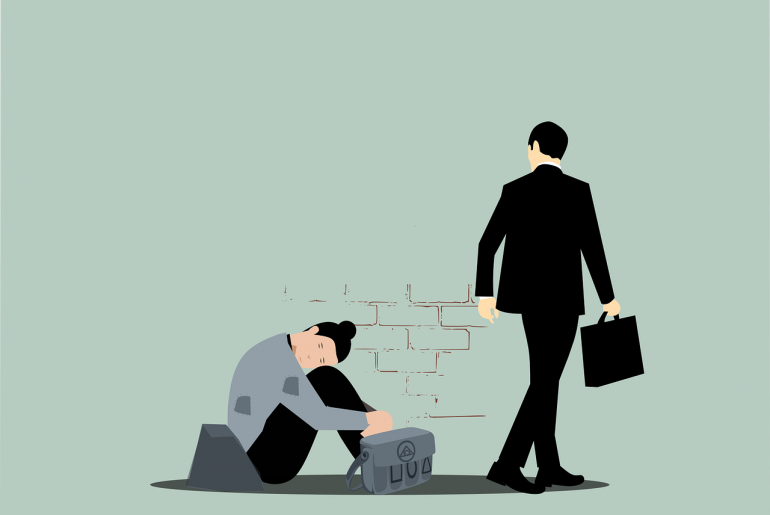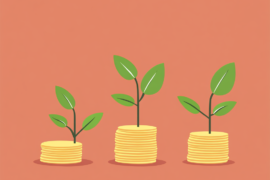This article may contain references to products or services from one or more of our advertisers or partners. We may receive compensation when you click on links to those products or services. Nonetheless, our opinions are our own.

Updated by Albert Fang
Ignoring signs of poor health can lead to undesirable consequences. People do check-ups and visitations to the hospital for this very reason. Staying healthy is a human priority, but this shouldn’t be only limited to physical health – pursuing good financial health is as important.
Financial health refers to the state of your finances; bank accounts, savings accounts, retirement plans, credit cards, assets and liabilities, among others. People who prioritize their financial health, and secure themselves by investing in pension funds, Auto insurance, health insurance, stocks and bonds, are believed to live a more fulfilled life.
Poor financial health describes a person’s inability to reach average financial standards. Like your health, a lack of attention means your financial health may start showing signs of possible plummets. However, you can revitalize your finances quickly by recognizing these signs and acting on them.
Visible Signs Of Financial Decline
To avoid the risks of bankruptcy and other possible financial issues, it’s essential to keep a close watch on your finances. These are some of the visible signs of poor financial health:
-
Using Credit Cards for Your Basic Needs
Suppose you use your credit card to purchase your little necessities like paying your bills, buying groceries, or paying the babysitter. It’s a vital sign of a financial drain. If you’re using your credit card bill for these basic needs, it could mean that you’re living paycheck to paycheck.
You can rescue your finances by cutting back on some luxuries like cutting your visit to your expensive salon or holding back on outings.
You can achieve this by being stern with your spending and clearing off your basic needs when you receive your paycheck. Paying attention to the things you buy and ignoring unnecessary items is a great tip for saving your money.
-
You Have a Poor Credit Score
Credit scores rate your ability to pay your credit card debts back. A low credit score could be due to defaulting on your accounts, paying so little on your credit card each month, making late payments, and more.
Credit scores are the most important factor in securing any loan. Lenders will assess your credit scores to see if you have a good FICO score before lending you money.
To maintain a respectable credit score, you should have a FICO score of around 700 to 750+. A poor credit score is a FICO score between 300 and 579. You can achieve a good credit score by paying your bills on time, paying down your revolving credit card balances, and increasing your credit limit.
Having a poor credit score can deny you loans when you need them the most. Therefore, it’s important to maintain a good credit score.
-
You Can’t Survive a Month Without Your Paycheck
During the COVID-19 Lockdown, 40% of Americans could not last a month without their paychecks. A CNBC study shows that many individuals live without savings for emergencies, even retirements.
Also, a survey by The Penny Hoarder shows that more than 56% of survey respondents don’t know how much money they spend in a month. This finding reflects that many people don’t budget their income and savings, which could be a reckless way of living.
You can split your paycheck into the basic requirements and save while at it. Having a budget helps you track unnecessary purchases and saves you a lot of money.
-
You Take Out Loans to Pay Outstanding Loans
Have you ever had to take out a loan to pay a debt? That’s a big sign of poor financial health.
This could mean that you have little or no means of income. The best way to address this is to find a higher-paying job to pay back your loans.
Paying a loan with another means extra interest and accruing more debts. If you notice that you do this often, you can budget your monthly salary by cutting down on some purchases.
-
You Have Unhealthy Relationships with People
Being unable to afford basic things might make you irritable. You might get angry easily or hate people doing things you can’t afford. This does not make you a bad person. Not being financially independent is a general cause of rotten moods.
When you start to snap at your partner or friends because they suggested you purchase something, you should go for a financial check-up. You can trace how you spend your money after each paycheck and reduce unessential expenses.
Good financial health is a mood lightener. Budget your spending and save for rainy days to remain happy.
Final Thought
Maintaining a healthy and secure financial lifestyle is a must-do for every individual. However, if you doubt your financial health, signs like a poor credit score and paying loans with another loan can notify you of your financial status. It’s also advisable to insure yourself and your properties against future losses – insurance is a smart investment.

Reviewed and edited by Albert Fang.
See a typo or want to suggest an edit/revision to the content? Use the contact us form to provide feedback.
At FangWallet, we value editorial integrity and open collaboration in curating quality content for readers to enjoy. Much appreciated for the assist.
Did you like our article and find it insightful? We encourage sharing the article link with family and friends to benefit as well - better yet, sharing on social media. Thank you for the support! 🍉
Article Title: 5 Signs of Poor Financial Health
https://fangwallet.com/2022/04/22/5-signs-of-poor-financial-health/The FangWallet Promise
FangWallet is an editorially independent resource - founded on breaking down challenging financial concepts for anyone to understand since 2014. While we adhere to editorial integrity, note that this post may contain references to products from our partners.
The FangWallet promise is always to have your best interest in mind and be transparent and honest about the financial picture.
Become an Insider

Subscribe to get a free daily budget planner printable to help get your money on track!
Make passive money the right way. No spam.
Editorial Disclaimer: The editorial content on this page is not provided by any of the companies mentioned. The opinions expressed here are the author's alone.
The content of this website is for informational purposes only and does not represent investment advice, or an offer or solicitation to buy or sell any security, investment, or product. Investors are encouraged to do their own due diligence, and, if necessary, consult professional advising before making any investment decisions. Investing involves a high degree of risk, and financial losses may occur including the potential loss of principal.
Source Citation References:
+ Inspo












































